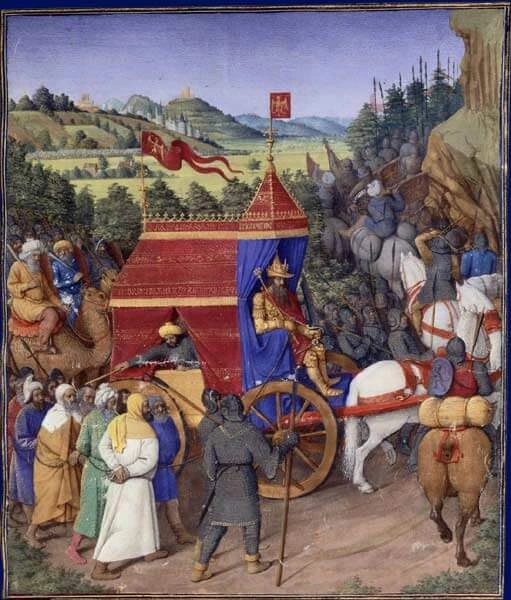27
Bom é para o homem suportar o jugo na sua mocidade.

In 1 Kings 22:48, Jehoshaphat seems to represent a corruption of the church, which takes place by falsifying truth. (Apocalypse Explained 514)
(References: Joel 3:12)
193. "'And I will write on him the name of My God.'" This symbolically means that they will have Divine truth engraved on their hearts.
To engrave something on someone means, symbolically, to engrave it on him so that it is in him as something his own, and the name of My God symbolizes Divine truth.
Here we must say something about My God's being Divine truth. In countless places the Word of the Old Testament uses the name Jehovah God, and also the two terms separately, saying sometimes Jehovah, sometimes God; and Jehovah means the Lord in respect to Divine good, while God means the Lord in respect to Divine truth. Or to say the same thing, Jehovah means the Lord in respect to Divine love, and God means the Lord in respect to Divine wisdom. Both terms are used because of the heavenly marriage in every part of the Word, which is a marriage of love and wisdom or a marriage of goodness and truth. Concerning this marriage, see The Doctrine of the New Jerusalem Regarding the Sacred Scripture, nos. 80-90.
[2] The Word of the New Testament does not use the name Jehovah God, but instead Lord God, for like Jehovah, the term Lord symbolizes Divine good or Divine love.
It can be seen from this that the name of My God symbolizes the Lord's Divine truth.
A name, when used of the Lord, means everything by which He is worshiped, as may be seen no. 81 above, and everything by which He is worshiped has some relation to Divine good and Divine truth.
Because people do not know the meaning of these words of the Lord, "'Father, glorify Your name,' and a voice came from heaven, saying, 'I have both glorified it and will glorify it again,'" 1 therefore we will say what they mean. When the Lord was in the world, He made His humanity the embodiment of Divine truth, which is also the Word, and when He departed from the world, He fully united the Divine truth to the Divine good that He had in Him from conception. For the Lord glorified His humanity, or made it Divine, in the same way that He makes a person spiritual. That is, He first instills in a person truths from the Word, and afterward unites these to goodness, and by that union makes the person spiritual.
Footnotes:
1. John 12:28.